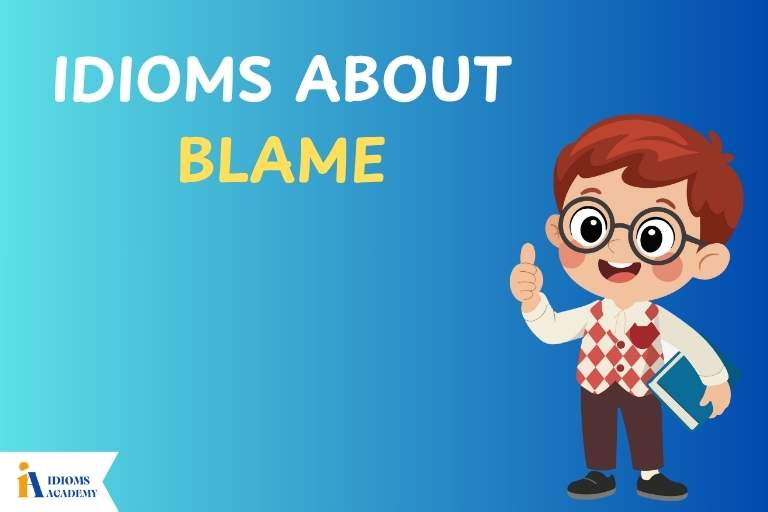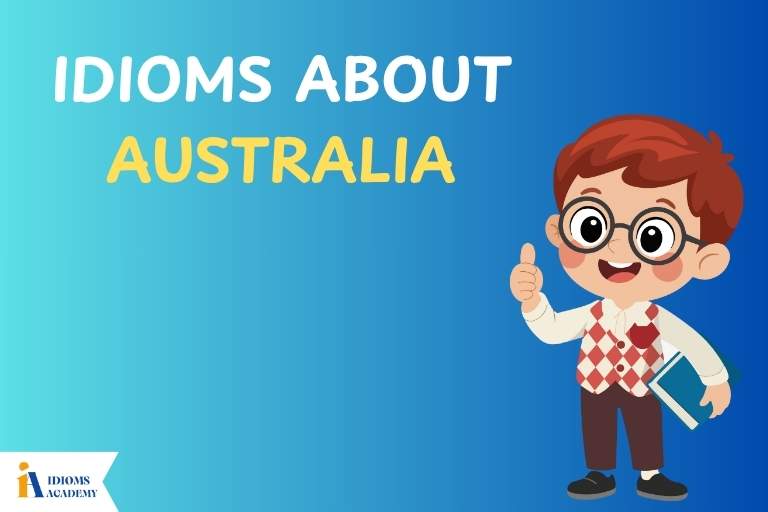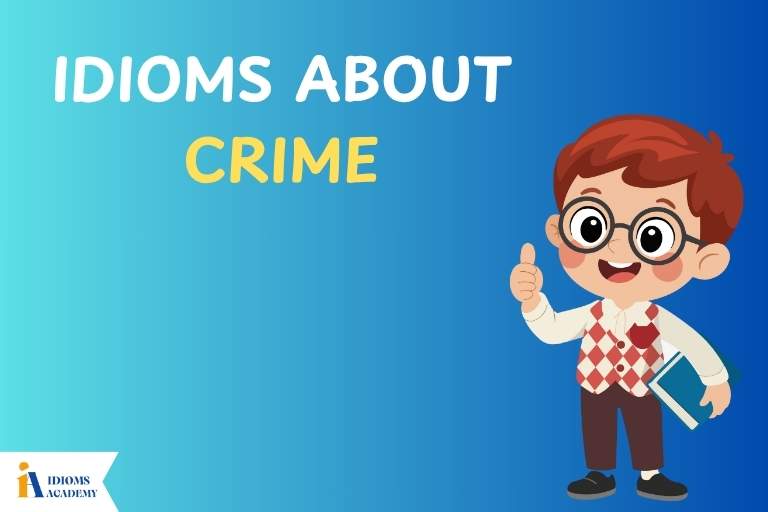People in the USA often come together to celebrate holidays, help neighbors, or support a favorite team. These gatherings bring feelings of closeness and support. To talk about these moments, Americans use special phrases called idioms. These expressions help explain the way people join as one group.
Idioms about togetherness are used in daily life—from school events to family dinners. Some talk about working as a team, while others show how friends stick together. This article shares 33 idioms that describe how people connect. Each one is easy to understand and helpful for kids in the USA.
Idioms About Togetherness
1. Join forces
Meaning: To work together for the same goal
Example Sentence:
- The kids joined forces to build a fort.
- Two schools joined forces to clean the park.
Other ways to say: Work together, team up
Fun Fact/Origin: Comes from old war times when armies joined to become stronger.
Usage: When people work together to do something big
2. Come together
Meaning: To unite as one group
Example Sentence:
- The town came together to help after the flood.
- Students came together to plan the school fair.
Other ways to say: Unite, gather
Fun Fact/Origin: This phrase became famous from a song by The Beatles.
Usage: When a group unites for help or fun
3. Birds of a feather flock together
Meaning: People with similar interests stick together
Example Sentence:
- All the skaters hang out after school. Birds of a feather flock together.
- The chess club kids always sit together.
Other ways to say: Like attracts like, similar people stay together
Fun Fact/Origin: It comes from how birds of the same kind fly in groups.
Usage: When friends have a lot in common
4. Rally around
Meaning: To support someone or something as a group
Example Sentence:
- Neighbors rallied around a sick friend.
- The class rallied around a teammate who got hurt.
Other ways to say: Support, stand by
Fun Fact/Origin: “Rally” came from an old French word meaning to bring together.
Usage: When people support someone in tough times
5. Pack in like sardines
Meaning: To crowd too many people into one place
Example Sentence:
- We were packed in like sardines on the bus.
- At the concert, there was barely any space to move.
Other ways to say: Squeeze in, crammed
Fun Fact/Origin: Comes from sardines being stuffed into cans.
Usage: Used when a space is too crowded
6. Round up
Meaning: To gather people or things
Example Sentence:
- The coach rounded up the players for practice.
- Dad rounded us up for dinner.
Other ways to say: Gather, collect
Fun Fact/Origin: Cowboys said this when getting their cattle.
Usage: When someone calls a group together
7. Pull together
Meaning: To help each other and work as a team
Example Sentence:
- We pulled together to finish the science project.
- The town pulled together after the storm.
Other ways to say: Cooperate, team up
Fun Fact/Origin: From sailing—ropes were pulled together to steer.
Usage: When people need teamwork
8. Mob scene
Meaning: A place that is super crowded
Example Sentence:
- The toy store was a mob scene on Christmas Eve.
- Black Friday made the mall a mob scene.
Other ways to say: Crowded place, big rush
Fun Fact/Origin: “Mob” means a big noisy crowd.
Usage: When a place is full of people
9. Gather steam
Meaning: To get stronger or more popular over time
Example Sentence:
- The school event gathered steam with more signups.
- The fundraiser started slow but gathered steam.
Other ways to say: Gain speed, grow stronger
Fun Fact/Origin: Steam engines got faster as they built steam.
Usage: When something slowly becomes big
10. Clump together
Meaning: To gather in a small group
Example Sentence:
- Kids clumped together under the umbrella.
- Tourists clumped together near the guide.
Other ways to say: Huddle, bunch up
Fun Fact/Origin: A “clump” means a close group of things.
Usage: When people group very closely
11. Herd together
Meaning: To move as a group
Example Sentence:
- Shoppers herded together at the store opening.
- Students herded into the gym for assembly.
Other ways to say: Crowd together, move in a group
Fun Fact/Origin: Comes from animals moving in herds.
Usage: When many people move in the same direction
12. Rub elbows with
Meaning: To meet important or famous people
Example Sentence:
- She rubbed elbows with athletes at the event.
- He rubbed elbows with city leaders.
Other ways to say: Mingle, meet VIPs
Fun Fact/Origin: Came from bumping arms at busy places.
Usage: When meeting famous or well-known people
13. Run with the crowd
Meaning: To do what everyone else is doing
Example Sentence:
- He joined the drama club to run with the crowd.
- She wore the new shoes to fit in.
Other ways to say: Follow the group, go with the flow
Fun Fact/Origin: Suggests people follow others without thinking.
Usage: When someone follows group trends
14. Mix and mingle
Meaning: To talk with others in a group
Example Sentence:
- Guests mixed and mingled at the party.
- The teacher told the class to mix and mingle.
Other ways to say: Socialize, chat around
Fun Fact/Origin: “Mingle” means to blend or move around.
Usage: At events where people talk and move around
15. Band together
Meaning: To unite for a shared reason
Example Sentence:
- The class banded together to stop bullying.
- Workers banded together to ask for a raise.
Other ways to say: Join forces, group up
Fun Fact/Origin: Comes from people forming a group or “band.”
Usage: When people unite for a cause
16. Come in droves
Meaning: To arrive in large numbers
Example Sentence:
- Fans came in droves to the concert.
- People came in droves for free samples.
Other ways to say: Show up in crowds, big turnout
Fun Fact/Origin: “Droves” were large groups of animals.
Usage: Used when lots of people arrive
17. Circle the wagons
Meaning: To unite and protect against problems
Example Sentence:
- The team circled the wagons after the loss.
- The family circled the wagons during hard times.
Other ways to say: Stand together, protect one another
Fun Fact/Origin: Pioneers did this with wagons for safety.
Usage: When people come together to protect themselves
18. Come out in full force
Meaning: To show up in big numbers
Example Sentence:
- Fans came out in full force for the home game.
- The town came out in full force to clean the park.
Other ways to say: Gather strong, show big support
Fun Fact/Origin: “Full force” means everyone shows up.
Usage: When a group shows full support
19. Pile in
Meaning: To rush into a place
Example Sentence:
- Kids piled into the school bus.
- Shoppers piled into the store at 8 a.m.
Other ways to say: Rush in, cram in
Fun Fact/Origin: Comes from stacking people or things together
Usage: When people enter fast and close
20. All hands on deck
Meaning: Everyone needs to help
Example Sentence:
- It was all hands on deck for the school play.
- Everyone helped clean up after lunch.
Other ways to say: Everyone helps, teamwork needed
Fun Fact/Origin: Came from sailing—when all crew helped in emergencies
Usage: When all team members are needed
21. Form a line
Meaning: To stand in an orderly row
Example Sentence:
- Students formed a line for lunch.
- People formed a line to enter the movie theater.
Other ways to say: Line up, queue up
Fun Fact/Origin: “Queue” is the British word for line.
Usage: When people wait their turn
22. Close ranks
Meaning: To come together to support one another
Example Sentence:
- The family closed ranks after bad news.
- The team closed ranks when their coach was criticized.
Other ways to say: Stand close, stay united
Fun Fact/Origin: Comes from soldiers standing closer to protect each other
Usage: When a group stands together to face problems
23. Stick together
Meaning: To stay close and help each other
Example Sentence:
- Friends stuck together on the field trip.
- The group stuck together in the crowd.
Other ways to say: Stay together, remain united
Fun Fact/Origin: Comes from things that are glued or sticky.
Usage: Used when a group stays close and doesn’t separate
24. Gather around
Meaning: To come close as a group
Example Sentence:
- The kids gathered around the teacher for storytime.
- The family gathered around the campfire.
Other ways to say: Come close, circle around
Fun Fact/Origin: Often used to call people to a place or activity
Usage: When a group comes close to focus on something
25. Draw a crowd
Meaning: To attract many people
Example Sentence:
- The magician drew a crowd with his tricks.
- The dog show drew a crowd in the park.
Other ways to say: Attract people, bring a crowd
Fun Fact/Origin: “Draw” means to pull or bring in
Usage: When something or someone attracts attention
26. Heap up
Meaning: To gather things into a big pile
Example Sentence:
- The leaves heaped up in the yard.
- Books heaped up on her desk.
Other ways to say: Stack up, pile up
Fun Fact/Origin: “Heap” means a large group or pile of something
Usage: Used when things gather in one place
27. Flood in
Meaning: To arrive in large numbers
Example Sentence:
- People flooded in for the free food.
- Fans flooded the stadium before the game.
Other ways to say: Pour in, rush in
Fun Fact/Origin: Like water rushing in during a flood
Usage: Used when lots of people arrive at once
28. Pack the house
Meaning: To fill a place completely
Example Sentence:
- The talent show packed the house.
- The game packed the gym with fans.
Other ways to say: Fill up, full crowd
Fun Fact/Origin: From theater shows that fill every seat
Usage: When an event brings many people
29. Cram in
Meaning: To put too many people in a small space
Example Sentence:
- We crammed into the car for the trip.
- Kids crammed into the cafeteria.
Other ways to say: Stuff in, squeeze in
Fun Fact/Origin: “Cram” means to stuff in tightly
Usage: When a space is very full
30. Meet up
Meaning: To get together with others
Example Sentence:
- They met up after school for a snack.
- We met up at the park on Saturday.
Other ways to say: Get together, hang out
Fun Fact/Origin: “Meet” means to come face to face
Usage: When people agree to see each other
31. Huddle up
Meaning: To gather closely, often for a quick talk
Example Sentence:
- The team huddled up before the play.
- We huddled up to plan our project.
Other ways to say: Group together, bunch up
Fun Fact/Origin: Used in sports for team talks
Usage: When a group gets close for a discussion
32. Rope in
Meaning: To get someone to join
Example Sentence:
- She roped me into helping with decorations.
- He roped in his friends to join the game.
Other ways to say: Convince, pull in
Fun Fact/Origin: From cowboys using ropes to catch animals
Usage: When someone gets others involved
33. In the same boat
Meaning: To be in the same situation
Example Sentence:
- We’re all in the same boat with this homework.
- After missing the bus, they were in the same boat.
Other ways to say: Same spot, same problem
Fun Fact/Origin: If you’re in the same boat, you face the same storm
Usage: When people share the same challenge
Quiz: Idioms About Togetherness
Instructions: Choose the best answer for each question. These questions help you remember the idioms about working together or being part of a group. Pick the answer that fits best.
Question Key
1. What does “pull together” mean?
A) Go home early
B) Work as a team
C) Sit in a circle
2. If people “pack in like sardines,” what does it mean?
A) People are spaced out
B) People are packed tightly
C) People are dancing
3. What does “stick together” mean?
A) Stay close and support each other
B) Tell jokes to friends
C) Walk alone in a crowd
4. When people “come in droves,” what’s happening?
A) They are hiding
B) They are arriving in big groups
C) They are driving away
5. What does “all hands on deck” mean?
A) Only a few people should help
B) Everyone must help
C) Take a break
6. If someone “rubbed elbows with” a star, what happened?
A) They met someone famous
B) They hurt their arm
C) They made a new dance move
7. What does “circle the wagons” mean?
A) Drive in a circle
B) Sing together
C) Group up to protect each other
8. What does “mob scene” describe?
A) A very quiet place
B) A place with too many people
C) A zoo for animals
9. If a group “bands together,” what are they doing?
A) Starting a music band
B) Playing hide and seek
C) Working together for a cause
10. What does it mean to “join forces”?
A) Get stronger by working alone
B) Work together on something
C) Take turns in a game
11. If a person “runs with the crowd,” what are they doing?
A) Going along with what others are doing
B) Making up new rules
C) Running a race alone
12. What does “gather around” mean?
A) Go to sleep
B) Come close as a group
C) Run far away
Answer Key
- B) Work as a team
- B) People are packed tightly
- A) Stay close and support each other
- B) They are arriving in big groups
- B) Everyone must help
- A) They met someone famous
- C) Group up to protect each other
- B) A place with too many people
- C) Working together for a cause
- B) Work together on something
- A) Going along with what others are doing
- B) Come close as a group
Wrapping Up
Idioms about togetherness help us talk about teamwork, friendship, and support in a fun way. People in the USA use them every day—at school, at home, and in the community. These expressions are short, but they say a lot about sticking together.
Learning these idioms helps us understand each other better. Whether you’re joining a group, helping out, or just hanging with friends, these phrases can help you say it clearly. Try using one the next time you’re with your team or family.




